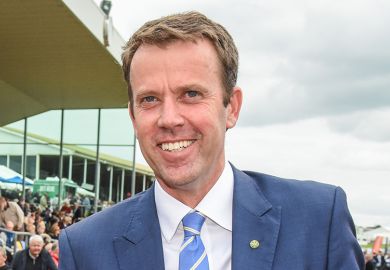Few people anticipated that Australia’s Coalition government led by Scott Morrison would return to power in last month’s election. The country now needs the returned government and the university sector to work together. This will require both parties to put aside residual tension.
The government’s relations with the sector have been in an uncomfortable place. Unable to negotiate parliamentary passage of an agreed approach to cost restraint, the government had introduced a student funding cap by regulation. Relations have been icy.
Meanwhile, during in the election, the Labor Party had offered policies that were attractive to the sector. A reinstatement of demand-driven funding and the prospect of “compacts” with providers, addressing two of the sector’s key issues: lifting the cap on revenue and avoiding the prospect of performance-based funding.
But in the interests of the sector and the nation, there is every reason for universities and the Coalition government to make a new start.
A sobering example of what happens when there is a breakdown in the relationship between universities and government can be found in the English experience. Between 2015 and 2017, the Conservative government initiated sweeping changes to the higher education environment including legislative change and a new regulator.
Gone was a “buffer body” providing funding – regulation through carrots and gentle sticks – and in came a different type of regulator. The Office for Students comes equipped with many sticks, but few carrots to be seen. Such sticks include new performance measures in the teaching excellence and knowledge exchange frameworks and an emphasis on evaluating university performance by graduates’ salary outcomes. Meanwhile, the release of the Augar review of funding across tertiary education threatens to add to universities’ woes.
There is a plausible explanation in the English sector that universities had taken for granted a privileged status in public service delivery. That came unstuck very quickly with charges of grade inflation, lowering standards and “fat cat” vice-chancellor pay. It is easier to make such charges stick when universities, collectively, are seen in political terms as part of the problem, not part of the solution.
Back in Australia, education minister Dan Tehan has much to gain from a thaw in relations with universities. It’s no fun being a minister without constituents, grinding away trying to address issues your colleagues see as important but with nobody in the sector engaged and no partners creating space for mutual success.
Communities want to see knowledge-based businesses, in the cities and in the regions, and clever solutions to environmental and social policy challenges. Ministers and universities gain when these are on display.
An opportunity for both sides to re-engage will come through two key reviews due to report in the coming months: a fresh look at the categories of higher education provider and a review of the Australian Qualifications Framework. Universities can use these to refresh thinking about a tertiary agenda.
There are other live topics where views across the sector vary more widely, such as performance-based funding formulae, so it may be useful for universities and government to focus energy on those where there is an opportunity for presenting constructive solutions.
The sector as a whole, well beyond regional universities, also has every reason to make the most of its teaching, research and engagement activities in rural and remote Australia. Despite the many exceptions, we know that business sectors and communities see universities as hard to partner with. A little humility and a lot of leveraging of universities’ convening power will oil the wheels of these discussions.
Universities, individually and collectively, should also keep working towards mature governance systems, ones where they are transparently held to account for students’ and taxpayers’ funding and afforded the freedoms of academic and organisational flexibility. Rather than simply claiming the autonomy that universities rightly regard as vital, it may be more effective to earn it, making the case that this is the best model for effective and efficient outcomes for Australians.
Overall, there is a lot at stake and it is vital that both the government and sector prioritise relationship-building for the longer term now. It’s time to talk.
Robert Griew is principal and Ant Bagshaw is director of the Nous Group.
POSTSCRIPT:
Print headline: Voting’s over, now we talk
Register to continue
Why register?
- Registration is free and only takes a moment
- Once registered, you can read 3 articles a month
- Sign up for our newsletter
Subscribe
Or subscribe for unlimited access to:
- Unlimited access to news, views, insights & reviews
- Digital editions
- Digital access to THE’s university and college rankings analysis
Already registered or a current subscriber?






